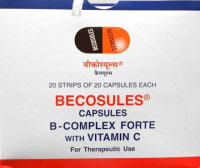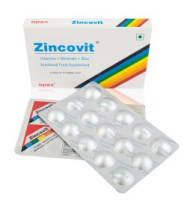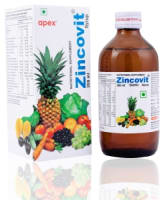USED FOR:
Bacterial infections
Severe allergic reaction
COMPOSITION:
Gatifloxacin Topical (NA)
Prednisolone (NA)
Therapeutic Uses:
anti infectives
ophthal otologicals

No interaction found

WEIGH RISKS VS BENEFITS
Gat P Eye Drop may be unsafe to use during pregnancy.Animal studies have shown adverse effects on the foetus, however, there are limited human studies. The benefits from use in pregnant women may be acceptable despite the risk. Please consult your doctor.

Gat P Eye Drop is probably safe to use during lactation. Limited human data suggests that the drug does not represent a significant risk to the baby.

Gat P Eye Drop may cause blurring of your vision for a short time just after its use. Do not drive until your vision is clear.

There is limited information available on the use of Gat P Eye Drop in patients with kidney disease. Please consult your doctor.

CAUTION
Gat P Eye Drop should be used with caution in patients with liver disease. Dose adjustment of Gat P Eye Drop may be needed. Please consult your doctor.
Uses of Sucralfate
Sucralfate is used in the treatment of intestinal ulcers and stomach ulcers.
Uses of Gatifloxacin Topical
Gatifloxacin Topical is used in the treatment of bacterial infections.
How to use Sucralfate
Take this medicine in the dose and duration as advised by your doctor. Check the label for directions before use. Measure it with a measuring cup and take it by mouth. Shake well before use. Sucrason O Suspension is to be taken empty stomach.Take it preferably 15 minutes before food.
How to use Gatifloxacin Topical
This medicine is for external use only.Take it in the dose and duration as advised by your doctor. Check the label for directions before use. Hold the dropper close to the eye/ear without touching it. Gently squeeze the dropper and place the medicine inside the lower eyelid or ear. Wipe off extra liquid.
How Sucrason O Suspension works
Sucralfate forms a coating over the ulcer or any other raw surface. This creates a physical barrier that protects the ulcer/raw surface from the gastric acid or any other injury, allowing it to heal.
How Gat P Eye Drop works
Gatifloxacin Topical is an antibiotic. It kills bacteria by inhibiting the DNA replication.
Common Constipation.
Expert advice for Sucralfate
Do not take the Sucralfate at least 2 hours before or after taking other medicines. It may interact with these other medicines Take Sucralfate on an empty stomach, preferably 1 hour before a meal. Avoid taking antacids, before or after 30 minutes of taking a dose of Sucralfate. Notify your doctor if you have a kidney disorder, as it may put you at a greater risk of developing aluminum overload. Notify your doctor, if you are or planning to become pregnant.
Expert advice for Gatifloxacin Topical
Your doctor has prescribed Gatifloxacin Topical to cure your infection and improve symptoms. Do not skip any doses and finish the full course of treatment even if you feel better.
Q. Is Sucralfate an antibiotic/sulfa drug/pain-killer/PPI?
Sucralfate is not an antibiotic/sulfa drug/ PPI (proton-pump inhibitor) or a pain-killer. It is an ulcer protective medicine
Q. Is Sucralfate available or sold over the counter?
No. Sucralfate is a prescription drug. It is not available or sold over the counter
Q. Is Sucralfate gluten free?
Yes. Sucralfate is gluten free. However, please refer to package insert of the prescribed brand before use
Q. Is Sucralfate safe?
Yes. Sucralfate is relatively safe if used as recommended. In case of any side-effects, consult your doctor
Q. Can I take Sucralfate with Prilosec/Nexium/ Tylenol/Zantac/ibuprofen/Pepto?
Yes. Sucralfate can be taken with Prilosec/Nexium/ Tylenol/Zantac/ibuprofen and Pepto if prescribed by your doctor
Q. Does Sucralfate cause headaches/weight gain/insomnia/ heartburn?
Sucralfate does not cause headaches/weight gain/insomnia or heartburn. If you experience any such symptoms, please consult your doctor
Q. Is Sucralfate a narcotic drug?
No. Sucralfate is not a narcotic drug.
Q. Does gatifloxacin topical contain sulfa?
Gatifloxacin topical does not contain sulfa. It is a fluoroquinolone antibiotic
Q. Is gatifloxacin topical the same as Zymaxid?
Zymaxid is the brand name for gatifloxacin eye solution
Q. Is gatifloxacin topical the same as ofloxacin?
Both gatifloxacin and ofloxacin are fluoroquinolone antibiotics and have the same mechanism of killing bacteria. Ofloxacin topical is used to treat eye and ear infections, whereas gatifloxacin is used in the form of eye/ear drops for the treatment of eye and ear infections only. They are also different with respect to the side-effects they cause
Q. Is gatifloxacin topical banned in India?
Gatifloxacin is banned in India for oral/injectable use in humans, however its use as eye/ear drops is not banned.
Uses of Prednisolone
Prednisolone is used in the treatment of severe allergic reaction, allergic disorders, asthma, rheumatic disorder, skin disorders, eye disorders and nephrotic syndrome.
How to use Prednisolone
This medicine is for external use only.Take it in the dose and duration as advised by your doctor. Check the label for directions before use. Hold the dropper close to the eye/ear without touching it. Gently squeeze the dropper and place the medicine inside the lower eyelid or ear. Wipe off extra liquid.
How Gat P Eye Drop works
Prednisolone belongs to a group of medicines called as glucocorticosteroids. Prednisolone increases the level of corticosteroids which are already present in the body and helps to treat various inflammatory conditions. It has anti-inflammatory, metabolic, immune, and hormonal effects on the body..
Common Electrolyte imbalance, Redistribution/accumulation of body fat, Bone degradation, Increased risk of infection, Muscle disorders, Increased blood pressure, Altered bone growth, Skin scar, Behavioural changes, Increased glucose level in blood, Cataract.
Expert advice for Prednisolone
It is a steroid medicine which works well for many different conditions, including serious illnesses. Take regularly to gain maximum benefit. Do not discontinue unless advised by your doctor. You may need to decrease the dose gradually. You may get side effects such as mood changes or stomach problems. Notify your doctor if you get them. Some side effects may occur after weeks or months. These include weakness of arms and legs, or developing a rounder face. Your risk of getting an infection may become higher. Tell your doctor immediately if you have a fever, flu-like symptoms, cough, painful urination, or a wound that does not heal.
Q. Is Prednisolone an anti-inflammatory drug?
Prednisolone belongs to the class of corticosteroids which has anti-inflammatory properties (suppresses the inflammation associated with many diseases, for example, arthritis). Hence, Prednisolone is used for the treatment of a number of inflammatory and auto-immune conditions.
Q. How long can I take Prednisolone for?
It is advisable to take Prednisolone for the duration prescribed by your doctor. Do not stop the treatment suddenly or take for a longer period than recommended by your doctor.
Q. Does Prednisolone contain penicillin?
Prednisolone does not contain penicillin. Prednisolone belongs to a group of medicines called steroids.
Q. Does Prednisolone expire?
Yes, Prednisolone does expire. All the medicines come with an expiry date mentioned on the pack. You must check the expiry date before using any medicine.
Q. Is Prednisolone a pain-killer?
Prednisolone is not a pain-killer. Prednisolone belongs to a group of medicines called steroids which are anti-inflammatory in nature and can help in the relief of pain associated with inflammation.
Q. Is Prednisolone safe?
Yes. Prednisolone is safe if used at prescribed doses for the prescribed duration as advised by the doctor.
Q. Is Prednisolone an immunosuppressant?
Prednisolone belongs to the class of corticosteroids and has immunosuppressant properties (suppresses the body’s immune system). Hence, Prednisolone is used for the treatment of a number of inflammatory and auto-immune conditions.
Q. Is Prednisolone a glucocorticoid?
Prednisolone is a glucocorticoid and belongs to a group of medicines called steroids (corticosteroids).
Q. Can I take Prednisolone with antibiotics?
Certain antibiotics may increase the metabolism of Prednisolone and hence decrease its effects. So, it may be necessary to adjust the dose of Prednisolone accordingly. Please consult your doctor before taking Prednisolone with antibiotics.
Q. Can I take Prednisolone with paracetamol?
Prednisolone can be taken with paracetamol. No drug-drug interactions have been clinically seen between the two. However, interactions may occur. Please consult your doctor before taking the two medicines together.


 Gat P Eye Drop
Gat P Eye Drop  Bookmark
Bookmark





















